I don’t have a car or even know how to drive. Admittedly, this can make it somewhat difficult to get into nature. However, it hasn’t stopped me from going camping. Even with my daughter and baby. Yes, I went camping with a newborn without a car!
Why Go Camping without a Car?
Aside from the obvious reasons like you don’t have a car or don’t want to rent one, there are plenty of reasons to enjoy nature without your car. Some of the benefits:
- Better for the environment
- No need to worry about break downs
- Cars limit your view of wildlife
- You won’t get a true camping experience
- Dealing with parking is a pain
Okay. Those are all good reasons, but how do you actually make it happen???
See How Far You Can Get with Public Transportation
Instead of choosing a place to go and then figuring out how to get there, I plan trips in reverse.
- First I see which national parks/nature areas are near public transport lines.
- Then I decide where to go.
I now live in Southeast Europe and most areas are very well-connected with bus lines. So, I can usually get very close to a good camping spot.
For example, when I went wild camping at Radoinsko Lake in Serbia, I took a bus that went about 10 miles (16km) from the lake.
As we got close, I was frantically looking at the GPS on my phone so I could tell the bus driver where to let us off. The driver was a bit skeptical about letting us off in the middle of “nowhere,” but he stopped where we told him to.
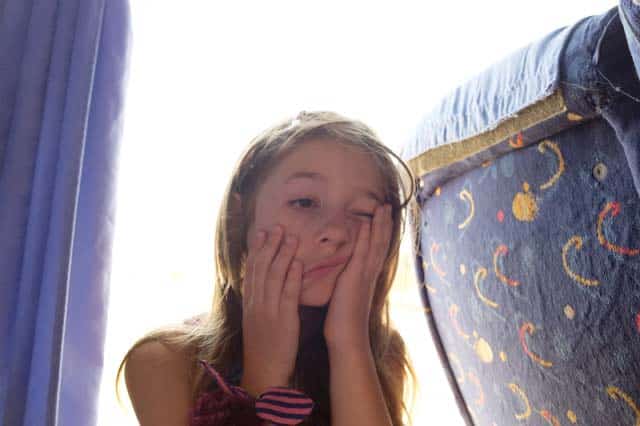
“Are we there yet mom?” -My daughter in the bus at the start of a camping trip.
Getting the Rest of the Way
Public transportation will only take you so far (especially if you are trying to get into real, remote nature. From there, you will several options:
1. Hitchhike.
I love hitchhiking and have done a lot of it (read about why I hitchhike with my daughter here). It can be difficult to hitchhike in urban areas. But, once you are in more remote areas, people are more likely to stop.
This is contingent on there being someone there to stop though. My daughter and I (on several occasions) have waited more than an hour for a car to go by. Once a car does go by though, it almost always stops.
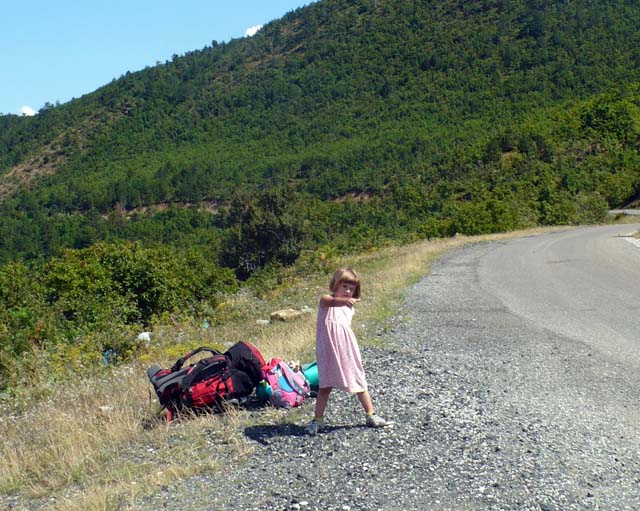
Hitchhiking in Albania
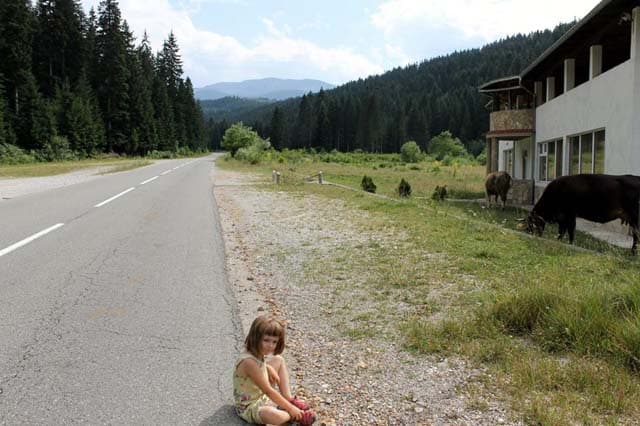
Waiting for a car to pass by (on the border between Montenegro and Kosovo)
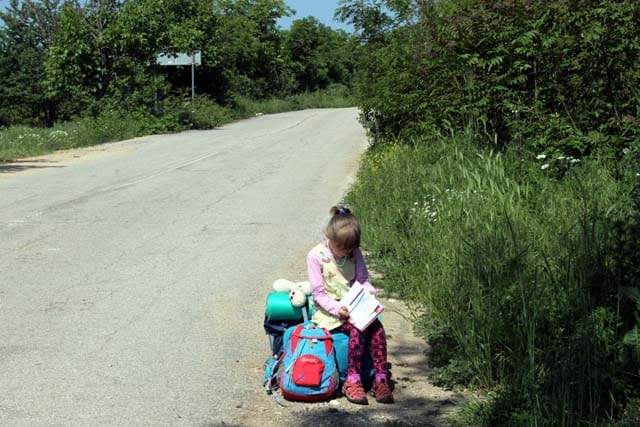
We waited nearly 2 hours for a ride. If anything, hitchhiking has definitely taught my daughter patience!
2. Bike.
I personally don’t have any experience with this, but many people do bike tours into beautiful nature areas. You can even take your bike on public transport for most of the way and then ride it to where you want to go.
A nice thing about traveling by bike is that campground fees are less by bike – assuming that you even stay in a campground instead of wild camping.
3. Taxi
Once I got remarried and had a new baby, I stopped with the hitchhiking (at least for the time being). It simply isn’t feasible to hitchhike with 4 people! So, my family made some trips by:
- Taking public transportation to the nearest towns
- Then taking a taxi to the camping spot.
Yes, taxis are expensive. However, they tend to be cheaper in small towns. And occasionally paying for a taxi is a heck of a lot cheaper than owning your own car.
4. Walk!
Hitchhiking and taxis can only take you so far. If you are without a car, then you better be prepared to walk with all of your gear – at least some distance.
For example, on that same trip I mentioned before, my daughter and I got a ride for 8.5 of the miles. The driver let us off at the small road going to the lake. We just walked this last bit. Which is one more reason to travel light.
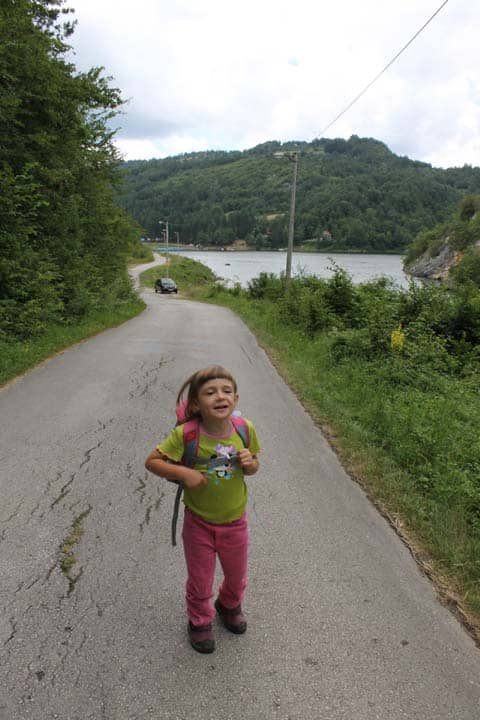
Almost there! Our camping spot is on the other side of this lake. 😀
Consider joining a hiking/outdoors group.
If public transportation won’t work for your, then look into nature groups in your area. You can become friends with people in the group (who may have cars) and go camping together.
Travel Light!
If you are camping without a car, then you are backpacking. You will need to have all of your gear with you (though there are some campgrounds where you can rent all of the equipment once you get there).
Traveling light means you’ll be able to walk to a nice camping spot. It also means that, unlike with car camping, you won’t be bringing a lot of unnecessary gear with you. Sure, it can be nice to have a camping chair or shower with you… but do you really need this stuff? Chances are you will enjoy nature and de-stress better when you don’t have to keep track of a bunch of crap.
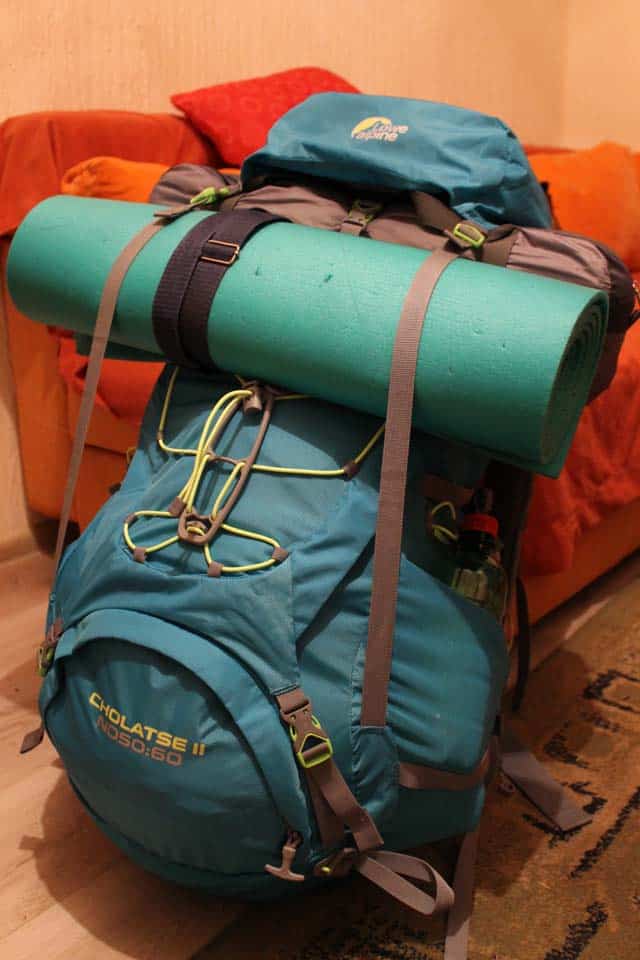
This is my backpack, packed for a 7 day trip with my (then) 6 y.o. daughter.
Side note: One of the things that really stood out to me in Ben Crawford’s interview about completing the AT with his family of 8 was how overwhelmed he was by his possessions when get got home.
“When they were on the trail, Ben said that he had about 20 things that he had to keep up with, most of which were in specific places inside his backpack. Once he got back home, he was overwhelmed by the amount of things he’s now got to keep up with. That’s why he’s begun to systematically go through their belongings and get rid of extraneous items in an effort to simplify and declutter their lives.”
Have an exit plan.
What if something happens while you are in remote nature? How will you get help without a car? As a parent of two young girls, I always have an exit plan.
Your exit plan may involve:
- Camping at campgrounds instead of wild camping.
- Bringing a communication device like the SPOT finder.
- Only going places where you will have a cell signal (and bringing a portable charger to keep your phone charged).
- Staying within a certain distance of civilization.
- Checking in with park rangers.
- Not taking any stupid risks and turning back if you aren’t sure about how safe a trail is.
Have you gone camping without a car? Let us know any advice you have in the comments.
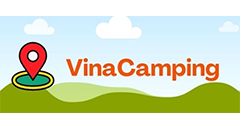

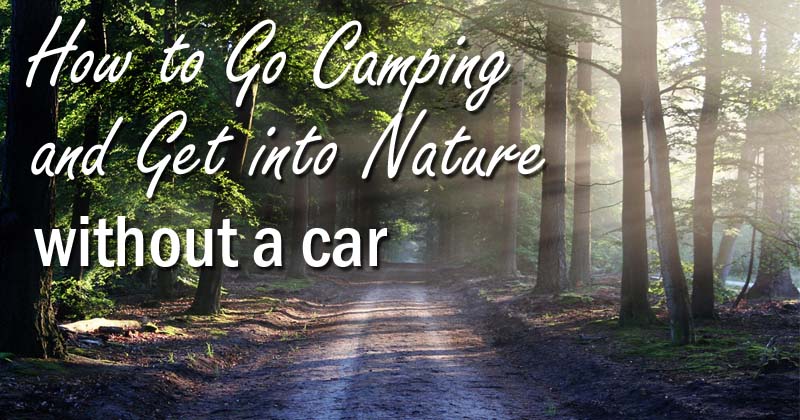
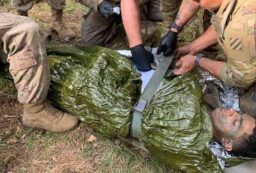
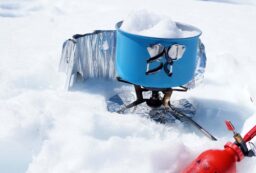
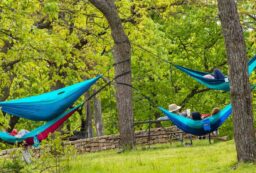
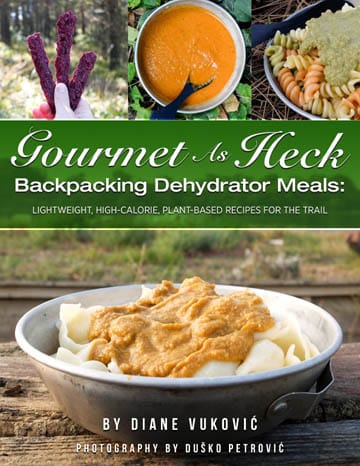



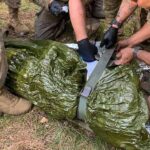

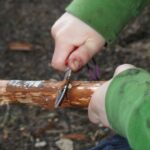
2 Comments
Lucy Blowfield
March 20, 2023 at 3:37 pmHi
Thank you so much for this article! I’ve been finding it hard to get out and go for nature trips because I can’t drive. I’ve been comparing myself with others who hop in the car, park up, and camp therefore I’ve been uninspired to plan a trip myself. However you’ve inspired me and proven that it can be done! Planning my national park hike now 🙂
Mark Bieniek
July 11, 2023 at 5:54 pmVery cool Lucy! I just read your post and I think that’s great you’re getting out to the great outdoors! I’m looking to live off the grid hopefully soon myself!! I will have a cell phone but that’s about it.